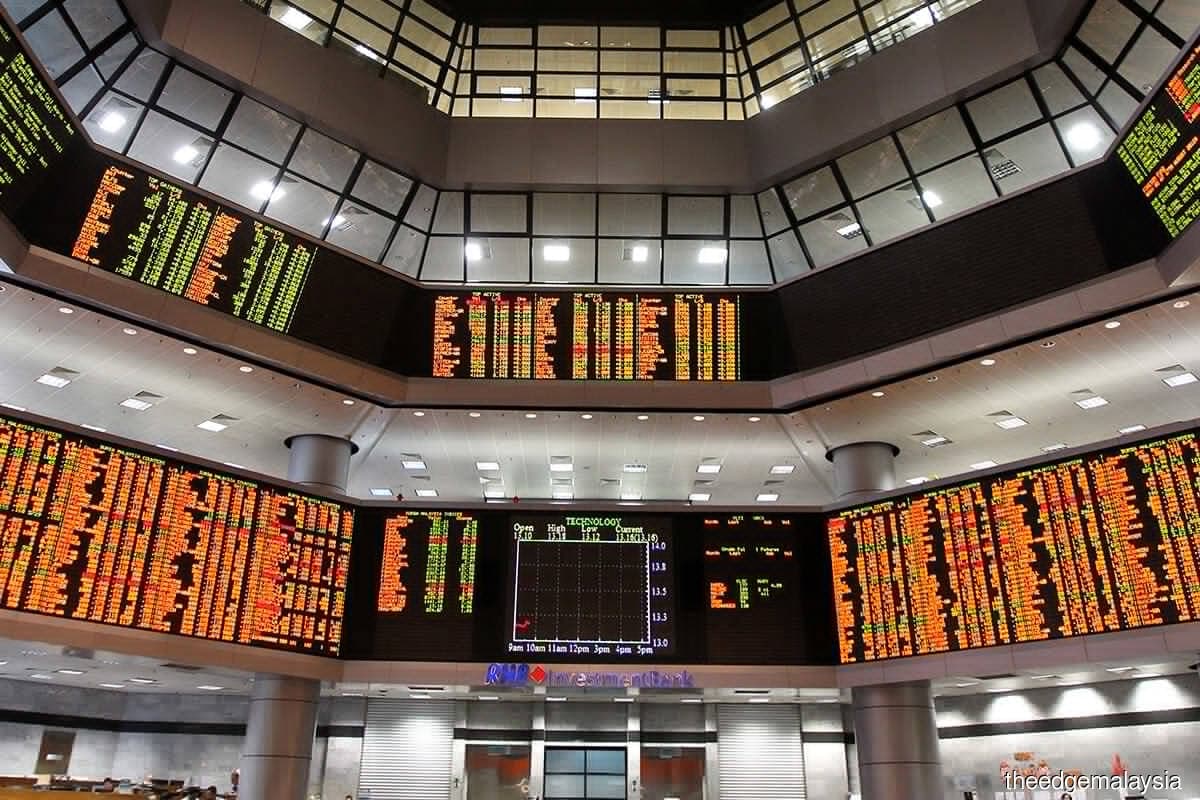
KUALA LUMPUR (June 12): Hong Leong Investment Bank (HLIB) Research estimated that foreigners changing their stance from underweight to market weight could potentially lead to RM16 billion worth of inflows into Bursa Malaysia.
On the other hand, HLIB said, inflows by local institutional investors could be aided by the Employees Provident Fund’s (EPF) potentially higher domestic allocation and absence of special withdrawals.
“While there are reasonable avenues for fund inflows, we reckon this will only meaningfully happen post state elections,” it said, adding that it maintained its KLCI target at 1,500 implying 15 times multiple on calendar year 2023 (CY2023) earnings per share.
The research house said the battered valuations (KLCI price-to-book value — two standard deviation) offers some solace for bottom nibbling to angle for a possible market reprieve in the second half of 2023 (2H2023) post polls.
HLIB noted that foreign shareholding on Bursa has been on a downtrend over the past decade.
“Rewinding back to its post-GFC [global financial crisis] high of 25.2% in May 2013, foreign shareholding has since fallen to a record low currently (April/May 2023: 20%),” it added.
This was a result of Malaysia’s reduced weight in the MSCI-EM index (declined from a post-GFC high of 4% in mid-2013 to 1.4% by May 2023) and foreigners’ underweight position on the country in recent years.
HLIB noted that foreigners net sold Malaysian equities in seven out of the past nine years (2014-2022), totalling some RM63.6 billion (5M2023: -RM2.9 billion).
“Our regression analysis between Malaysia’s weight in the MSCI-EM index and foreign shareholding on Bursa suggests that foreigners remain underweight on Malaysia.
“In fact, their current underweight position (as of April/May 2023) is one of the largest since end-2015. By our calculations, foreigners have been [underweight] on Malaysia since July 2020," it said.
As such, based on Malaysia’s current 1.4% weight in the MSCI-EM index (end-May), HLIB's regression model projects that a move to market-weight by foreigners would bring their shareholding to 21% (versus 20% currently).
HLIB said a one-point increase in foreign shareholding could actually lead to some RM15.7 billion in potential foreign inflows into Bursa.
For perspective, this sum is 3.4 times the inflows by foreigners last year and larger than the highest annual foreign inflow in the past decade (2017: +RM11.3 billion).
The research firm said the last time foreigners were market-weight/overweight on Malaysia was in June 2020/May 2016 to May 2020, as calculated by its regression model.
HLIB also noted that earlier last month, Prime Minister Datuk Seri Anwar Ibrahim had called on EPF to increase its domestic investments to 70% this year versus 64% last year.
“Should this happen, based on EPF’s RM1 trillion AUM [asset under management] as of 4Q2022, a six ppt [percentage point] rejig from overseas to domestic [market] could potentially see RM60.2 billion flowing from [overseas] to the [domestic market],” said the research firm.
Assuming 41% (five-year average) of this sum is allocated to equities, this suggests a possible RM24.6 billion inflow to Bursa — more than double the total net buys by domestic institutional investors over the past five years (2018-2022: RM11 billion).
In addition, the absence of EPF special withdrawals this year (2020-2022: RM146 billion) could also help liquidity inflows into the market by local institutional investors.
“While there are reasonable avenues for fund inflows into Malaysian equities, we reckon this will only meaningfully come to fruition once the impending state elections are done and dusted,” it added.
Notably five of the six states will see their respective assemblies automatically dissolve between June 26 and July 4.
